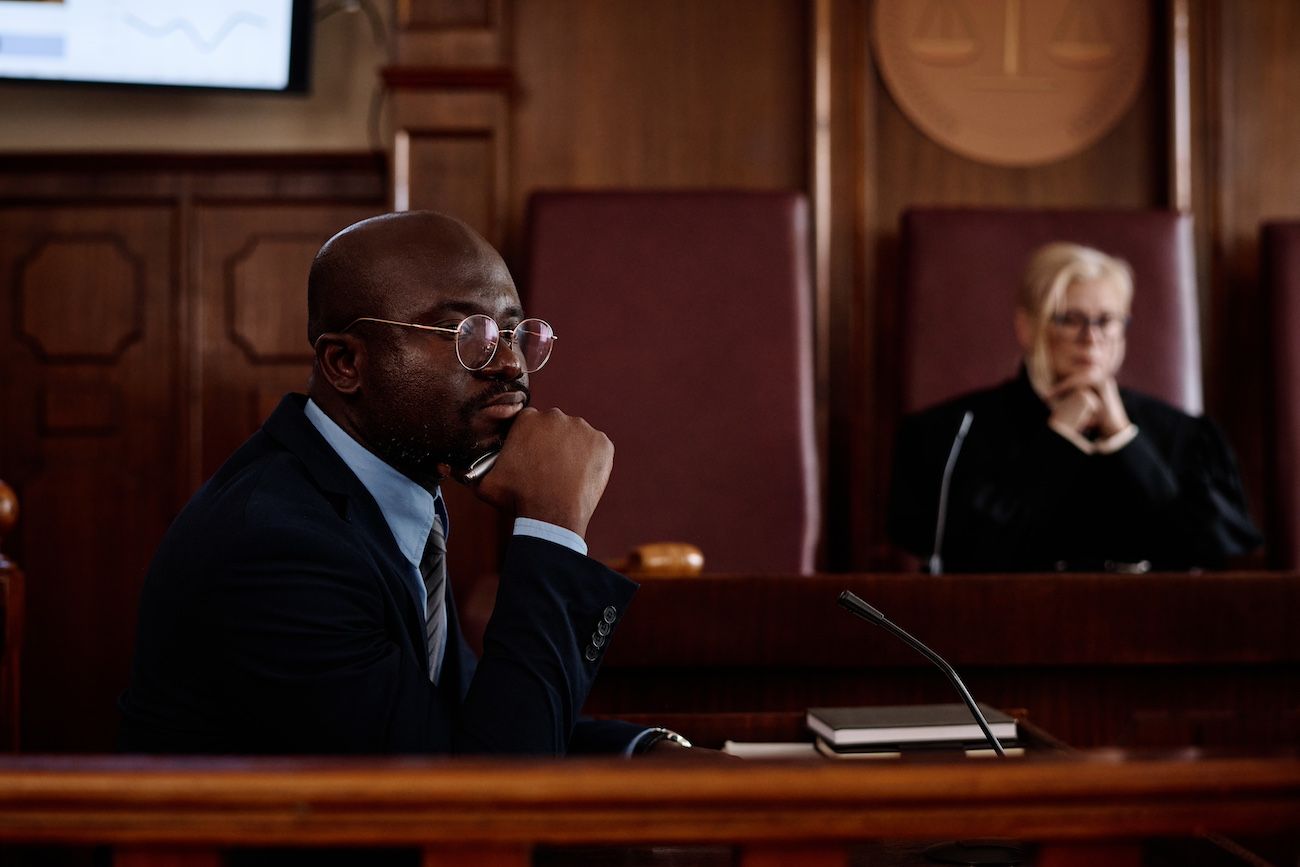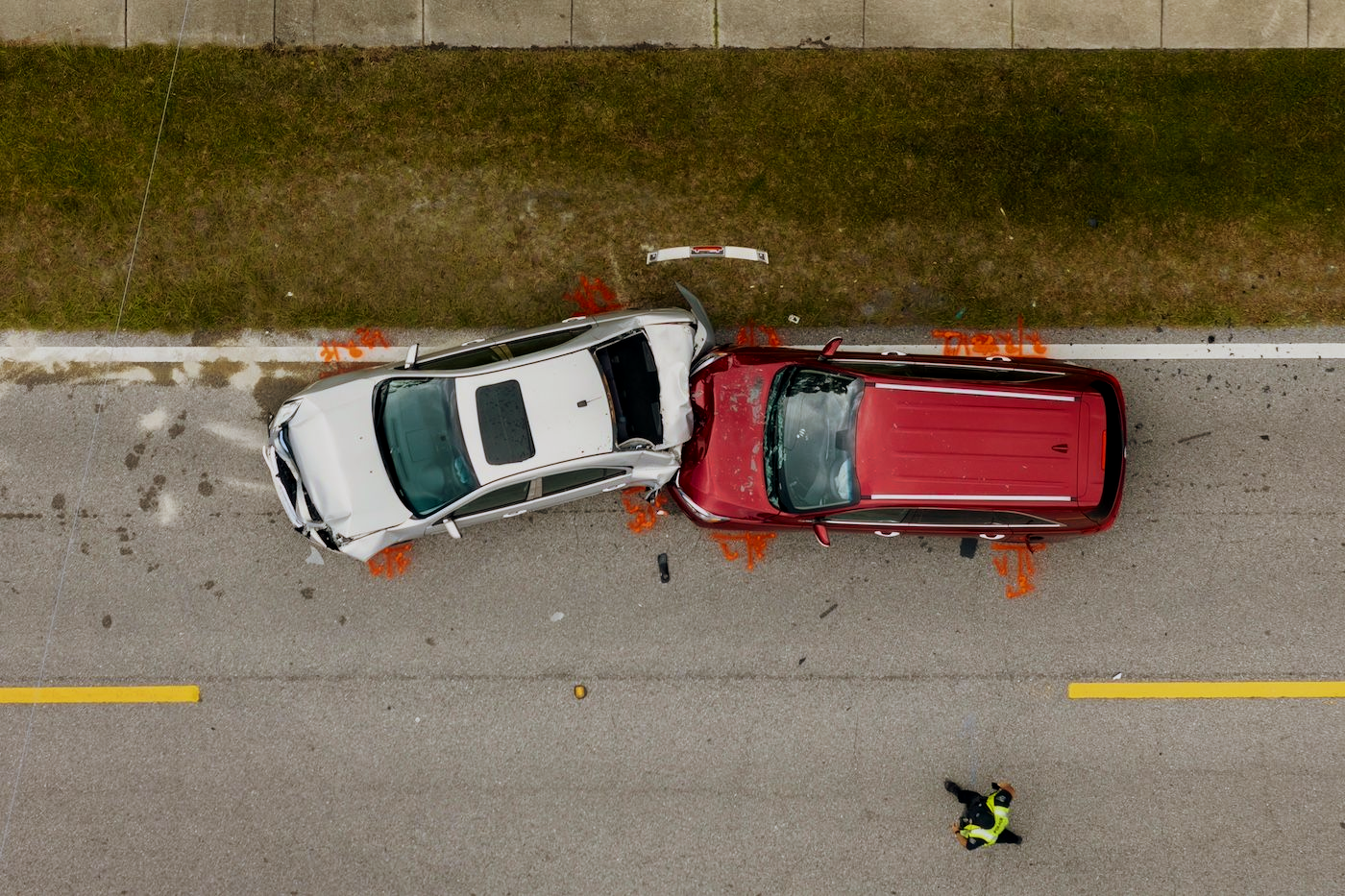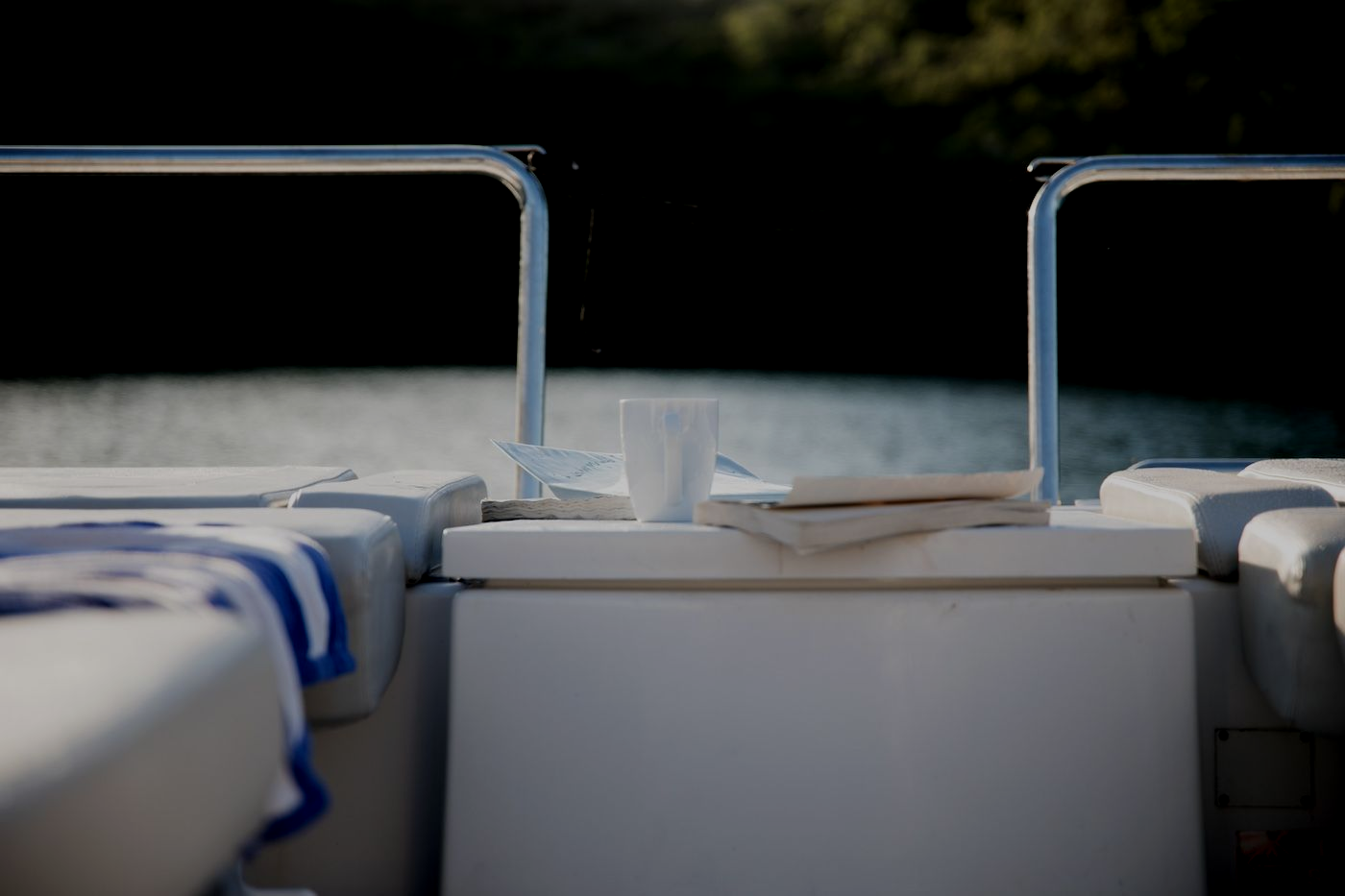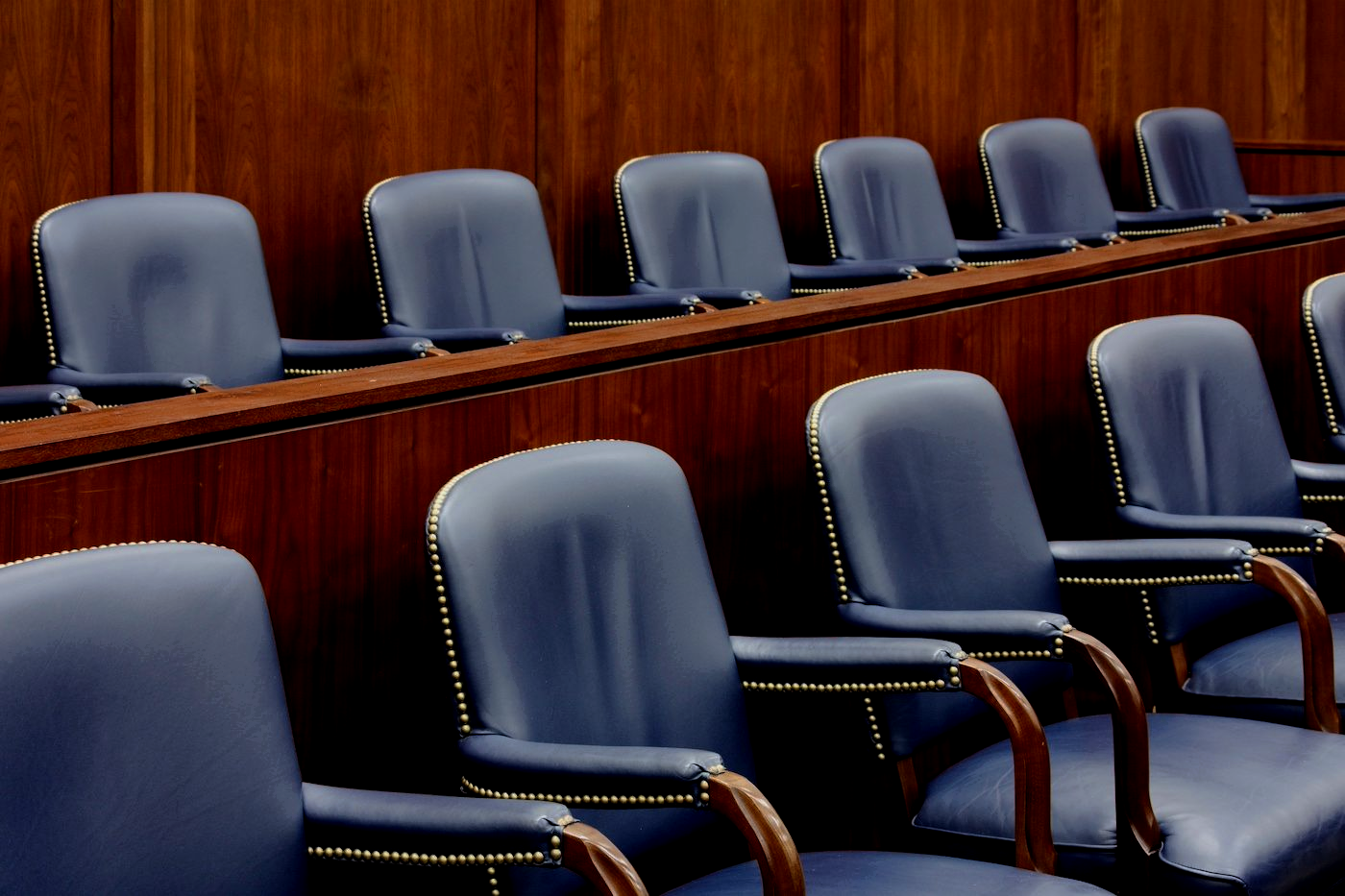What Happens During “Discovery” in a Personal Injury Lawsuit in Missouri?
About the Author
Ethan Charles (“EC”) Duckworth is the founding attorney of Duckworth Injury Law. EC earned his law degree from the University of Missouri - Columbia, where he graduated in the top 10 of his class and served as an Editor of the Missouri Law Review. EC currently serves as a member of the Missouri Association of Trial Attorneys (MATA) and is a graduate of the Ross T. Roberts Trial Academy. EC has represented hundreds of injury victims throughout his career resulting in tens of millions of dollars in compensation recovered. EC’s firm is highly experienced in handling all aspects of the discovery process in civil litigation.
If Your Personal Injury Claim Isn’t Settled, Be Prepared for the Discovery Phase & Every Step Beyond With Guidance From Duckworth Injury Law, a Missouri Injury Law Firm
In a personal injury claim, if your attorney is unable to resolve your claim via settlement outside of court, a lawsuit will likely need to be filed against the at-fault party. Typically, lawsuits are filed either due to the at-fault party’s insurance company denying liability or offering too little money for settlement of your claim. In cases where a lawsuit must be filed, “discovery” is the process whereby the parties gather information from one another prior to trial.
Who determines how discovery is conducted in a personal injury lawsuit?
In Missouri, the rules and procedures surrounding the discovery process are governed by the Missouri Supreme Courts Rules of Civil Procedure. However, local county circuit courts will often supplement the Missouri Supreme Court Rules with their own “Local Rules”. For example, in Boone County, the 13th Judicial Circuit has a set of Local Rules, which include additional requirements that lawyers practicing before it must follow.
Discovery is largely conducted amongst the lawyers involved in the lawsuit without the involvement of the court. The lawyers involved are expected to adhere to the Rules of Civil Procedure and applicable Local Rules. As such, oftentimes the attorneys involved are able to complete the discovery process without ever needing to bring an issue before the assigned judge on their case.
However, from time to time, disagreements arise between the parties during the discovery process. Typically, these discovery disputes involve issues of a party failing to respond to a discovery request, failing to produce certain information or documents, failing to follow the discovery rules, or simply a disagreement between the parties about what’s “relevant.” In these situations, a party will typically file a “Motion to Compel,” in which that party asks the court to enter an order requiring the other party to produce the requested information. During the hearing for a motion to compel, a judge will listen to both sides and make a determination as to whether the information must be produced or not.
What all does a Missouri personal injury lawsuit discovery phase include?
Pursuant to Missouri’s Rules of Civil Procedure, a party is entitled to “obtain discovery regarding any matter, not privileged, that is relevant to the subject matter involved in the pending action….” Rule 56.01. As you can see, this is a fairly broad standard, permitting the parties to obtain information on a wide variety of “relevant” items. It’s important to note that, in Missouri, a party does not have to show that the information that they are requesting will result in the production of admissible evidence, only that the information that they are requesting is “reasonably calculated to lead to the discovery of admissible evidence.” Rule 56.01.
In personal injury cases, the most common forms of discovery are interrogatories, requests for production of documents, requests for inspection, requests for admission, and depositions.
- Interrogatories – Interrogatories are written questions submitted by one party that are to be answered under oath by the other party. Interrogatories are commonly issued at the beginning of the discovery process and are used to obtain background information on a party, general information relating to the claim, and other specific questions tailored to the claim at issue. In Missouri, interrogatories are governed by
Rule 57.01. Missouri requires interrogatories to not exceed 25 total questions (without permission from the court for more) and requires the responding party to provide answers within 30 days after service.
Requests for Production of Documents – Requests for Production of Documents (“RFPs”) are written requests submitted by one party for the other party to produce certain documents relating to the claim at issue. Common RFPs include requests for the insurance policies at issue, photos of the scene/vehicles, photos of injuries, medical records/bills, crash reports/incident reports, recorded statements, and more. RFPs are governed by Rule 58.01.
Requests for Inspection – Also governed by Rule 58.01, requests for inspection are a formal request for entry upon land or property in the possession or control of the other party. These inspections involve measuring, surveying, photographing, testing, or sampling the property or land at issue.
Requests for Admission – As the name implies, requests for admission (“RFAs”) involve one party asking the other party to admit to certain facts relating to the claim at issue. RFAs can be useful in narrowing the disputed issues and for locking a party into a set version of facts. Later in the case, RFAs can be used in depositions, at trial, or for purposes of establishing summary judgment. The specifics for issuing and responding to RFAs can be found in Rule 59.01. - Depositions – Perhaps the greatest tool in the “discovery toolbelt,” depositions involve the live questioning of a party or witness under oath as to information they possess relating to the claim at issue. Depositions take place outside of court and are typically done in-person before a court reporter (and often a videographer). Rule 57.03 governs depositions upon oral examination in Missouri. Parties are limited to 10 depositions each (without leave of court, with no deposition lasting longer than one seven-hour day). Typically, the party/witness testifying must answer a question asked during a deposition, although the opposing attorney will have the opportunity to assert objections prior to the response being provided. Prior to trial, the judge will rule on the objections made during the deposition and determine what testimony may be read to the jury and/or played to the jury. Missouri depositions can generally be used for any purpose at trial.
What limitations are there on discovery in Missouri?
As set forth above, each of the specific discovery methods has certain restrictions which are outlined in the Missouri rule specific to that discovery method. However, there are some general limitations for all these forms of discovery as well. First, the discovery sought should not be “cumulative, duplicative or can be obtained from some other source that is more convenient, less burdensome, or less expensive.” Rule 56.01. In other words, Missouri’s discovery rules seek to prevent discovery being used as a weapon in an attempt to bog down another party with a litany of duplicative requests. Similarly, the court may limit discovery where “the party seeking discovery has had ample opportunity to obtain the information by discovery in the action.” Rule 56.01. This rule prevents a party from attempting to delay the litigation/delay trial by continuing to submit discovery requests after they have had a reasonable time to conduct discovery. And finally, third, the court may limit discovery if the scope is outside of that permitted under Rule 56.01. This is a broad limitation on discovery, essentially allowing the court to limit discovery where the court believes a discovery request seeks irrelevant information.
How long does discovery take to complete?
The length of discovery directly correlates with the complexity of the personal injury case. In other words, a simple rear-end collision with limited injuries may take only a few months to fully conduct discovery, while a complex wrongful death case may take multiple years to fully conduct discovery. While each of the discovery methods has set timelines for when responses must be made, oftentimes complicated cases will involve multiple rounds of each of these discovery methods. For example, it’s not uncommon to send two, three, or even four sets of RFPs to a party as the case progresses and as new information is discovered. Likewise, a catastrophic injury case may involve dozens of depositions involving fact witnesses, liability experts (accident reconstructionists, engineers), and damages experts (doctors, life care planners, economists). However, after a lawsuit is filed, the trial judge will often issue a “scheduling order,” which outlines specific dates different stages of discovery must be completed by.

Personal Injury Attorney, EC Duckworth, Fights for His Clients in Missouri Through Every Phase of a Personal Injury Lawsuit
While the discovery process may sound intimidating, it should be second nature for a personal injury lawyer with experience litigating cases. At Duckworth Injury Law, attorney EC Duckworth has litigated hundreds of personal injury cases and is highly versed in Missouri’s discovery rules and procedures.
Whether your case involves a motorcycle collision on HW 50 in Sedalia, a truck crash on HW 54 in Osage Beach, or a car accident on HW 24 in Moberly, EC will guide your case smoothly through the discovery process and towards a successful resolution. Pettis County, Camden County, Randolph County, or any of our other mid-Missouri counties - he has practiced in these venues, spent time in these towns, and understands the courts’ local rules across these circuits.
Reach out to Duckworth Injury Law today for a free consultation on your case, including what your case’s discovery process may entail.












